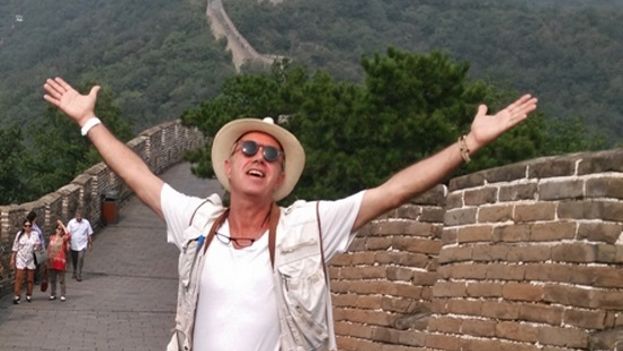
![]() 14ymedio, 30 October 2015 — The critic and filmmaker Enrique Colina came out Thursday in defense of the Cuban director of films and plays Juan Carlos Cremata with a strong message titled On Censorship and Its Demons. In the text, which has been widely circulated by email, he affirms that to remain silent in the face of the censorship suffered by the playwright, “Is to fold before the arbitrary decisions that potentially affect all of us as creators, but also as citizens.”
14ymedio, 30 October 2015 — The critic and filmmaker Enrique Colina came out Thursday in defense of the Cuban director of films and plays Juan Carlos Cremata with a strong message titled On Censorship and Its Demons. In the text, which has been widely circulated by email, he affirms that to remain silent in the face of the censorship suffered by the playwright, “Is to fold before the arbitrary decisions that potentially affect all of us as creators, but also as citizens.”
A reading of Colina’s article was a part of the agenda of the upcoming meeting of the G20 Group, a gathering of numerous artists and producers who demand a law for the cinema. However, Cremata said that the organizers of the meeting determined “it is not the time” to present the article at the meeting this coming Saturday at their headquarters at Fresa y Chocolate in Havana’s Vedado district.
The letter was made public via email with the consent of the author, who sees no “contradiction in discussing a cinema law which we are fighting for, in which it is explicitly guaranteed that the law supports us to defend the culture against the exercise of a censorship which calls itself revolutionary.”
Colina, a man of great prestige without the Cuban film industry, and the creator of a work that enjoys great popularity, says in the message that accompanied the letter that there is an “ethical deterioration fed by neglect, corruption and the most cowardly and opportunistic faking.” As the only remedy, the director of the films “Neighbors” and “The Marble Cow” calls for a ripping away of “this gag that the bureaucratic bastards want to impose on committed artistic expression.
“After so many years preaching Marxism-Leninism it seems that the custodians of the orthodoxy of silence have forgotten the laws of dialectics“
“After so many years preaching Marxism-Leninism seems that the custodians of orthodoxy of silence have forgotten the laws of dialectics,” Colina reflects strongly, adding that “faith and obedience to immobility seem to be the altars of worship at which we convene with their damning anathemas and excommunications,” and, in a colloquial tone concludes: “But no, my friend, we protest.”
“There is already a stagnation in citizen awareness and ideological exhaustion from the spent propagandistic character of the media,” says the letter. “This conduct of intolerance expresses well the weakness and the intellectual and political shabbiness to take on an open and responsible debate,” he added.
“What real constructive sense does an exclusive censorship bring to the debate between those who undertake these artistic activities and are potentially the subjects of this same arbitrariness,” asks the director.
Colina’s support is added to a long list of cultural figures inside and outside Cuba who have denounced the censorship against the play the The King is Dying (also produced in English as: Exit The King), directed by Cremata and closed down last September. Later, the authorities revoked Cremata’s contract as a theater director.
Just a week ago, Cremata announced a fundraising campaign to “continue independent work in film and theater in Cuba,” a gesture that opens the way to self-financing after decades of working with the Cuban Institute of Art and Film Industry (ICAIC) and the National Council for the Performing Arts.
